This content is only available in English
Excellent basic research combined with innovative technology
TranslaTUM aims to combine the discovery culture of biology with aim of application, typical for the engineering sciences to solve quantitative problems of health and develop cutting-edge methods for earlier diagnosis and efficient prevention and treatment. Groundbreaking basic and applied interdisciplinary research will promote technological ability, increase our knowledge of cancer cell biology, and develop new concepts on the path from traditional biological observations to solutions that foster precise, personalized medicine. TranslaTUM focuses on three research pillars:
- Research signal transduction and interaction between tumor cells and the immune system
- Identification of target structures and molecules for diagnosis and treatment, and the design of new treatment paradigms that address complex systems
- Innovation of novel sensing, imaging and analysis techniques that will lead to earlier diagnosis of cancer and promote precision medicine
Our Research Groups
Cell Biology of Cancer
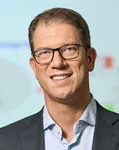
Florian Bassermann
Research in our lab focuses on the molecular pathophysiology and evolution of malignant diseases, particularly hematological neoplasms, such as B-cell malignancies and acute leukemias, as well as selected solid entities including lung cancer.
Immune Cell Signaling in Chronic Lymphocytic Leukemia

Maike Buchner
The focus of my Max Eder research group is to understand how signaling perturbations in malignant and normal B cells affect their survival and/or malignant spread in order to find new treatments.
Control and Manipulation of Microscale Living Objects
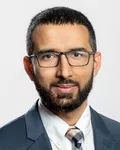
Ghulam Destgeer
Our research is focused on a range of topics including developing “acousto-microfluidics” platforms for contactless manipulation of micro/nano particles, cells, droplets, and microorganisms and “lab on a chip” technologies for single cell and single molecule analyses using droplet microfluidics platform.
Fluorescence Imaging
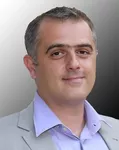
Dimitris Gorpas (Group of V. Ntziachristos)
We develop advanced methods for pre-clinical and clinical imaging. Our focus is the development of quantitative methods that go well beyond conventional "photographic" fluorescence imaging, as well as the validation of fluorescent agents.
Pediatric Oncology

Julia Hauer
Pediatric oncology program at TranslaTUM is composed of two pillars (1) prevention of childhood cancer focusing in acute leukemia and (2) translational cellular immunotherapy and oncolytic virotherapy against pediatric sarcoma.
Biomedical Electronics

Oliver Hayden
Integration, simplicity and actionability are key requirements for diagnostics in the clinical routine as well as for decentralized healthcare applications. Based on these principles the Chair is developing platform technologies including workflow solutions for in vitro and in vivo diagnostics.
Translational Immunooncology

Simon Heidegger (Group of F. Bassermann)
Research in our lab focuses on the interaction between immune cells and cancer cells, with particular interest in innate immune mechanisms. We are interested in the molecular patters in malignant cells that are detected by innate immunity and thus initiate cancer immunosurveillance.
Solute Carriers in Cancer

Ruth Eichner - (Group of F. Bassermann)
Our lab focuses primarily on nutrient-transporting SLCs in different cancer entities, including hematological malignancies such as leukemia and solid tumors. We are interested in elucidating the drivers of SLC expression in cancer, with a focus on proteostatic and metabolic regulation, and aim to investigate the impact of aberrant SLC expression on metabolism, differentiation, proliferation, and progression.
Immune Signalling
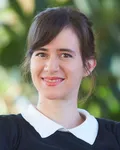
Julia Jellusova
The overarching goal of our research is to elucidate how metabolism and signal transduction are integrated in B cells in the normal and diseased state. B cells play a crucial role in our immune responses to pathogens. Reduced B cell activity can thus result in increased sensitivity to infections.
Computation & Machine Learning

Dominik Jüstel (Group of V. Ntziachristos)
The group for Computation & Analytics works on precise mathematical models and fast reconstruction methods for MSOT & OPUS systems, generating high-quality optoacoustic and ultrasound images that provide quantitative structural & functional data.
Imaging and Biomarkers in Oncology

Sussane Kossatz
In the research group “Imaging and Biomarkers in Oncology”, we develop biomarker-targeted approaches for molecularly selective tumor detection and therapy. We are exploring this approach in a wide range of tumor types, which are displaying patterns of overexpressed biomarkers on tumor cells.
Translational Immunotherapy
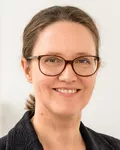
Angela Krackhardt
My overall research goal is the development of novel cancer immunotherapies focusing especially on adoptive transfer of tumor-reactive T cells. We are highly interested in the identification of MHC-associated peptide ligands exclusively presented by tumor cells and therefore highly suitable for specific tumor rejection.
Experimental Radiation Oncology and Radiobiology

Gabriele Multhoff
One of the focus areas of Prof. Gabriele Multhoff’s research work is the development of innovative cell-, molecule- and antibody-based targeted immunotherapies based on heat shock proteins. The aim is to combine these new therapeutic approaches with conventional radiation therapy and chemotherapy as a theragnostic.
Laboratory for Cognitive Cell Micromanipulation
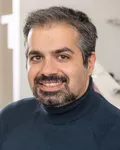
M. Ali Nasseri (Group of V. Ntziachristos)
M. Ali Nasseri conducts research in areas related to micro- biomedical- technology where imaging, computer science and AI, mechanical engineering, and electrical engineering are applied to medical and biological applications in micro and nano scales.
Mechanobiology
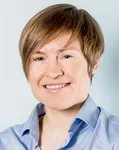
Janna Nawroth
Our research focuses on the development of organ-on-chip systems, i.e. human organotypic microtissues cultured in a mechanically active microenvironment that mimics physiological cues and forces, such as fluid shear stresses, confinements, and strain.
Biological Imaging
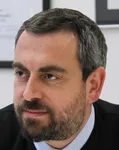
Vasilis Ntziachristos
The Chair Biological Imaging (CBI) at the Technical University of Munich (TUM) focuses on the development and propagation of in vivo imaging technology to read novel, previously invisible processes and disease biomarkers.
Translational Optoacoustic

Miguel Pleitez
The general goal of my team in Translational Optoacoustic is to advance biological and biomedical research by achieving non-destructive live-cell chemical microscopy with label-free biomolecular sensitivity using molecule-specific mid-infrared excitation and highly-sensitive optoacoustic and optothermal detection.
Evolution of Blood Cancer

Judith S. Hecker
My junior research group is focused on the age-related phenomenon clonal hematopoiesis of indeterminate potential (CHIP) and extracellular vesicles (EVs) in context of development and maintenance of blood cancer as well as their impact on novel immunotherapies, such as CAR-T cells.
Experimental Cancer Genetics

Roland Rad
Genome sequencing has provided tremendous insights into the mutational landscapes in cancer, but has also revealed that we are far from understanding the complexity of the molecular processes. To address these challenges, the Rad group has developed transposon-based screening technologies in mice.
AI in Healthcare and Medicine

Daniel Rückert
The Lab for AI in Medicine at TU Munich develops artificial intelligence (AI) and machine learning (ML) techniques to improve medicine for patients and healthcare professionals. Our aim is to address some of the key challenges in healthcare and medicine using AI.
Immune Signals and Cancer

Jürgen Ruland
My lab has a long standing interest in the molecular pathogenesis of lymphomas. Based on the functional characterization of recurrent chromosomal translocation in human MALT lymphomas, we identified the long sought-after molecular link that antigen receptors on lymphocytes utilize to activate the transcription factor NF κB.
Translational Cancer Research and Experimental Cancer Therapy
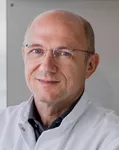
Dieter Saur
We are studying fundamental biologically and clinically relevant aspects of cancer: how it develops, progresses, spreads to distant sites, and why it becomes resistant to anti-cancer therapies.
CAR-T Cell Therapies
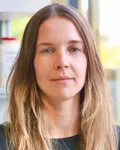
Andrea Schmidts
The focus of my Emmy Noether group is to understand and combat cancer cell resistance to CAR-T cell therapy. We aim to improve this innovative therapeutic approach and extend it to a broader patient population in clinical practice.
Immunopathology and Signal Transduction
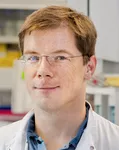
Marc Schmidt-Supprian
Immunopathologies include exaggerated responses to harmless substances, misguided responses against our own body, which can lead to autoimmune diseases and the uncontrolled expansion of immune cells, which in turn can cause cancer. We investigate the molecular and cellular mechanisms underlying such disorders.